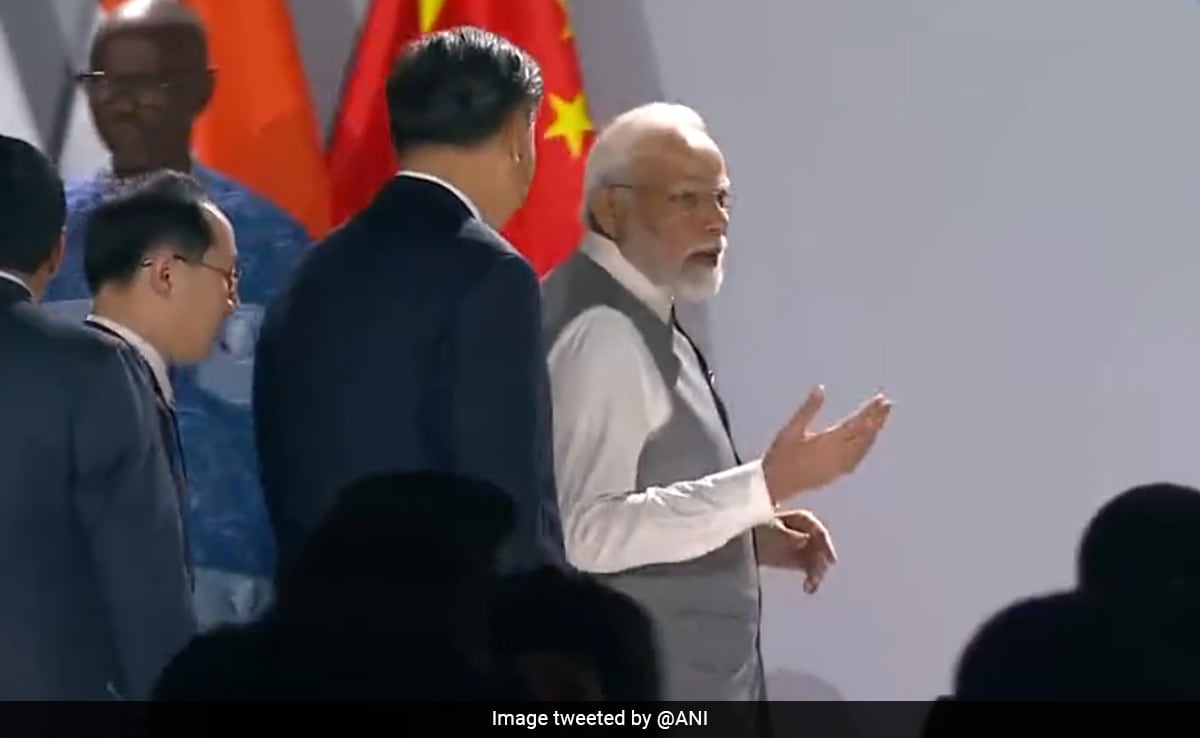PM Narendra Modi meets with Chinese President Xi Jinping at BRICS Summit
New Delhi:
Prime Minister Narendra Modi and Chinese President Xi Jinping agreed to work for “expeditious de-escalation” along the entire Line of Actual Control (LAC), where tensions have been high since the violent face-off in June 2020 in eastern Ladakh’s Galwan Valley.
The two leaders, who met on the sidelines of the BRICS Summit in South Africa, agreed to direct relevant officials in their countries for expeditious disengagement along the LAC.
“It was a conversation with President Xi Jinping on the sidelines of the BRICS Summit. Prime Minister had interaction with other BRICS leaders. In the conversation with President Xi Jinping, the Prime Minister highlighted India’s concerns over unresolved issues along the LAC and other areas along the India-China border,” Foreign Secretary Vinay Kwatra told reporters today.
Mr Kwatra said PM Modi underlined that the maintenance of peace and tranquility in border areas, and respecting the LAC are essential for the normalisation of India-China relationship.
“In this regard, the two leaders agreed to direct their relevant officials to intensify efforts at expeditious disengagement and de-escalation,” the Foreign Secretary said.
The 19th round of India-China Corps Commander-level meeting was held at the Chushul-Moldo border meeting point on the Indian side on August 13-14. The two sides had a positive, constructive and in-depth discussion on the resolution of the remaining issues along the LAC in the western sector, the Foreign Ministry had said.
In line with the guidance provided by the leadership, they exchanged views in an open and forward-looking manner, the ministry had said.
The BRICS Summit was chaired by South African President Cyril Ramaphosa. Brazil’s President Luiz Inacio Lula da Silva also attended, while Russian President Vladimir Putin joined it through video conference.
A declaration unveiled at the end of the three-day BRICS (Brazil, Russia, India, China, South Africa) Summit said the leaders of the grouping called for an expeditious finalisation and adoption of the Comprehensive Convention on International Terrorism within the UN framework.
“We are committed to combating terrorism in all its forms and manifestations, including the cross-border movement of terrorists, and terrorism financing networks and safe havens,” the declaration said. “We reiterate that terrorism should not be associated with any religion, nationality, civilization or ethnic group,” it said.

